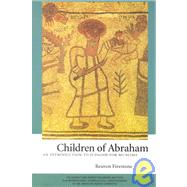| Foreword | xi | ||||
| Preface | xv | ||||
|
|||||
| Author's Preface | xix | ||||
| Part I. A Survey of Jewish History | 1 | (88) | |||
|
2 | (3) | |||
|
5 | (14) | |||
|
5 | (1) | |||
|
6 | (4) | |||
|
10 | (2) | |||
|
12 | (1) | |||
|
13 | (1) | |||
|
13 | (1) | |||
|
14 | (4) | |||
|
18 | (1) | |||
|
19 | (20) | |||
|
19 | (2) | |||
|
21 | (2) | |||
|
23 | (3) | |||
|
26 | (2) | |||
|
28 | (2) | |||
|
30 | (2) | |||
|
32 | (5) | |||
|
37 | (2) | |||
|
39 | (25) | |||
|
39 | (1) | |||
|
40 | (4) | |||
|
44 | (10) | |||
|
54 | (3) | |||
|
57 | (2) | |||
|
59 | (2) | |||
|
61 | (3) | |||
|
64 | (10) | |||
|
64 | (1) | |||
|
65 | (1) | |||
|
66 | (1) | |||
|
67 | (7) | |||
|
68 | (2) | |||
|
70 | (2) | |||
|
72 | (2) | |||
|
74 | (15) | |||
|
74 | (1) | |||
|
75 | (2) | |||
|
77 | (2) | |||
|
79 | (1) | |||
|
80 | (2) | |||
|
82 | (3) | |||
|
85 | (2) | |||
|
87 | (2) | |||
| Part II. God, Torah, and Israel | 89 | (54) | |||
|
91 | (19) | |||
|
91 | (1) | |||
|
92 | (2) | |||
|
94 | (3) | |||
|
97 | (2) | |||
|
99 | (1) | |||
|
100 | (2) | |||
|
102 | (2) | |||
|
104 | (3) | |||
|
107 | (3) | |||
|
110 | (15) | |||
|
111 | (1) | |||
|
111 | (1) | |||
|
112 | (1) | |||
|
113 | (1) | |||
|
114 | (1) | |||
|
115 | (3) | |||
|
118 | (1) | |||
|
119 | (2) | |||
|
121 | (1) | |||
|
122 | (1) | |||
|
122 | (3) | |||
|
125 | (18) | |||
|
128 | (2) | |||
|
130 | (3) | |||
|
133 | (7) | |||
|
140 | (3) | |||
| Part III. Practice | 143 | (76) | |||
|
145 | (8) | |||
|
147 | (2) | |||
|
149 | (4) | |||
|
149 | (1) | |||
|
149 | (1) | |||
|
150 | (1) | |||
|
151 | (2) | |||
|
153 | (10) | |||
|
156 | (3) | |||
|
159 | (4) | |||
|
163 | (27) | |||
|
165 | (4) | |||
|
169 | (1) | |||
|
170 | (5) | |||
|
170 | (2) | |||
|
172 | (3) | |||
|
175 | (9) | |||
|
176 | (1) | |||
|
177 | (6) | |||
|
183 | (1) | |||
|
184 | (4) | |||
|
185 | (1) | |||
|
186 | (1) | |||
|
187 | (1) | |||
|
188 | (2) | |||
|
188 | (1) | |||
|
189 | (1) | |||
|
190 | (18) | |||
|
190 | (3) | |||
|
193 | (2) | |||
|
195 | (5) | |||
|
200 | (1) | |||
|
201 | (7) | |||
|
208 | (11) | |||
|
211 | (2) | |||
|
213 | (6) | |||
| Part IV. Human Destiny | 219 | (22) | |||
|
221 | (16) | |||
|
227 | ||||
|
224 | (3) | |||
|
227 | (3) | |||
|
230 | (1) | |||
|
231 | (6) | |||
|
237 | (4) | |||
| Chronology | 241 | (51) | |||
| Glossary | 292 | (11) | |||
| Recommended Reading | 303 | (4) | |||
| Index | 307 |








